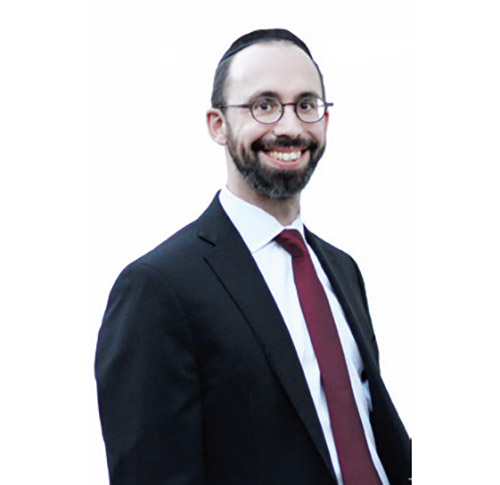
This week’s dvar Torah is dedicated l’iluy nishmas my mother, Miriam Mirel bas Shalom a”h, upon her yahrzeit this week 13th Adar Rishon.
There was a time I frequented a gym to work out. There, I met a fellow named Shachar who competed in bodybuilding tournaments. He worked out daily for hours and developed massive muscles. Suddenly he wasn’t there, and I later found out he was caught using inappropriate substances and kicked out of the competition. A few months later I met Shachar on the street and was shocked to see that he had gained a lot of weight. He was still muscular, but extremely out of shape. “Wow,” I thought. “This fellow was young and incredibly strong and successful. Now he stopped exercising for just four months and look how much benefit he’s lost!” This made a real impact on me. I saw with my own eyes the power of constantly exercising and developing one’s physical abilities. This applies all the more so to our spiritual strengths—our character, our prayer, our chesed and our Torah study. There is no standing still: You either move ahead…or fall behind.
We find this concept by the Sin of the Golden Calf in a poignant way.
After the Sin of the Golden Calf, Hashem tells klal Yisrael, “V’atah horeid edyecha,” Now remove your ornaments (edyecha)” (Shemos 33:5). What were these ornaments they were wearing and why the need to remove them after the sin? Rashi (quoting Gemara Shabbos 88a) explains that these ornaments were the crowns they received at the giving of the Torah, when they declared “naaseh v’nishma” (We will do and we will hear). After the sin, Hashem asked them to remove these elevated signs as they no longer deserved them. However, Onkelos translates the word edyecha as zaynom—specialized tools/weapons. What are these specialized tools/weapons, when did they receive them and why do they need to remove them precisely now?
The Midrash Tanchuma (in Tetzaveh) says that when klal Yisrael declared naaseh v’nishma, 120,000 angels descended! Half the angels placed a crown on the head of each of the 600,000 Jews. The other half of the angels gave each Jew a present. One opinion says these presents were kli zayin, specialized tools/weapons.
Still, why now and what did they need them for?
The Beis Halevi (Rabbi Yosef Dov Halevi Soloveitchik) explains that the declaration of naaseh v’nishma is in the plural: we will do. How could klal Yisrael say “naaseh,” we will do? How can one person commit for someone else? In truth, they should have said e’eseh, I will do. Rav Soloveitchik answers that the declaration was made in the plural because it reflected not only their own personal commitment to Hashem, but they committed to help ensure that other Jews would keep the Torah and mitzvos as well. The question remains: How could they commit the actions of other persons? The answer is that Hashem sent angels to gift klal Yisrael with specialized tools/weapons. These were not physical tools, but rather the persuasive ability to make a deep impression on others, the gift to say convincing words.
However, the whole episode was short-lived. When the golden calf emerged from the fire, the elders failed to stand up to the erev rav (mixed multitude) who had created it. They were scared. This “erev rav,” who were Egyptians who had converted, employed sufficient power to destroy the crowns and the weapons received when the Torah was given. Everything went up in smoke. Their special weapons/gifts were conditioned on a level of commitment they just didn’t have.
Each of us has special unique qualities and abilities that are unique gifts from Hashem. They are given to us for a beneficial purpose. We need to identify the talents and qualities we have and utilize them properly. If you have talent to write, you can help your rabbi write a dvar Torah. My daughters’ friends know how to style hair and they help each other before they attend a wedding. Handy people can help their family, friends and neighbors fix items in their house. Each of us can offer so much to one another!
Commenting on certain sacrifices the Jewish people were required to bring, Rav Hirsch has said that every drop of blood and every ounce of energy we devote and invest in the fulfilment of Hashem’s will is given back to us by Hashem. With a strengthened commitment to one another we can perhaps fully utilize our gifts from Hashem to be supportive of each and every Jew around us according to his or her needs. Our positive words and actions will mingle together to bring us back to the elevated spiritual status we long to regain.
By Rabbi Baruch Bodenheim
Rabbi Baruch Bodenheim is the associate rosh yeshiva of Passaic Torah Institute (PTI)/Yeshiva Ner Boruch. PTI has attracted people from all over northern New Jersey, including Teaneck, Bergenfield, Paramus, Rockaway and Fair Lawn. He initiated and continues to lead a multi-level Gemara learning program. Recently he has spread out beyond PTI to begin a weekly beis midrash program with in-depth chavrusa learning in Livingston and Springfield. This year he joined Heichal Hatorah in Teaneck as a Gemara iyun rebbe. His email is rb@ptiweb.org.








